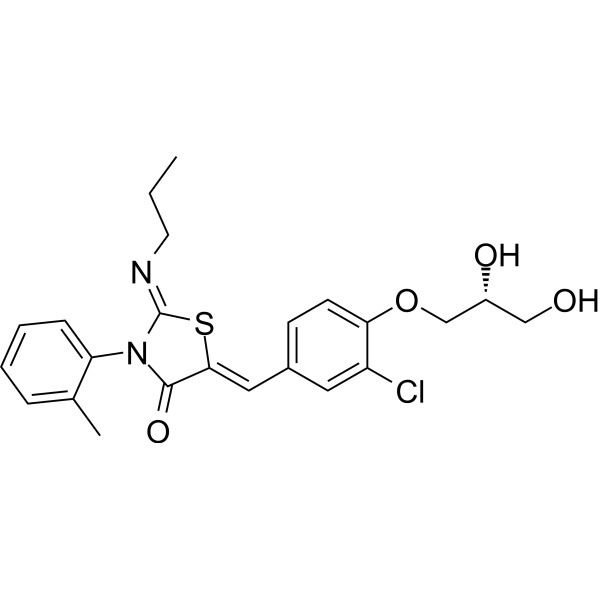
Ponesimod is to be taken once a day by mouth.
How ponesimod works
Ponesimod is a selective sphingosine-1-phosphate receptor 1 (S1P1) immunomodulator.
The therapy stops immune cells (lymphocytes) from leaving lymph nodes, by blocking S1P signalling. This reduces the number of circulating immune cells, preventing them from infiltrating target issues. In people with relapsing-remitting multiple sclerosis (RRMS), ponesimod prevents immune cells from crossing the blood-brain barrier and damaging myelin. Myelin is a protective sheath that insulates nerve cells, and is damaged in patients with MS.
The immune cell count reduction is rapid, dose-dependent, and maintained with continued dosing. The drug’s effect is reversible when discontinued.
Studies of ponesimod for RRMS
A current Phase 3 study, OPTIMUM, (NCT02425644) aims to compare the effectiveness and safety of posenimod to teriflunomide (Aubagio) in reducing relapses in RRMS patients. This study has finished recruiting approximately 1,100 participants, who will either be treated once daily with ponesimod (20 mg per day), or receive teriflunomide (14 mg per day) for 108 weeks. The results are expected in 2019.
Another Phase 3 study, POINT, (NCT02907177) will compare the effectiveness, safety and tolerability of posenimod in 20 mg doses in people with RRMS who are currently being treated with Tecfidera. The study will be conducted under a Special Protocol Assessment (SPA) with the U.S. Food and Drug Administration (FDA). It is currently recruiting participants.
Earlier studies showed promising results. It has been tested at different doses (10 mg, 20 mg and 40 mg) in Phase 2 studies (NCT01006265). This study found that ponesimod significantly reduced the number of new active lesions on monthly MRI brain scans and reduced the frequency of relapses. These results were published in the Journal of Neurology, Neurosurgery and Psychiatry. An extension study published in 2013 confirmed the findings.
So far, studies have suggested that ponesimod does not cause lymphotoxicity by destroying or depleting lymphocytes (immune cells) or interfering with their cellular function.
Though no detailed information has been provided yet, the most reported side effects for ponesimod are shortness of breath and asymptomatic liver enzyme elevations.
Note: Multiple Sclerosis News Today is strictly a news and information website about the disease. It does not provide medical advice, diagnosis, or treatment. This content is not intended to be a substitute for professional medical advice, diagnosis, or treatment. Always seek the advice of your physician or other qualified health provider with any questions you may have regarding a medical condition. Never disregard professional medical advice or delay in seeking it because of something you have read on this website.
No comments:
Post a Comment